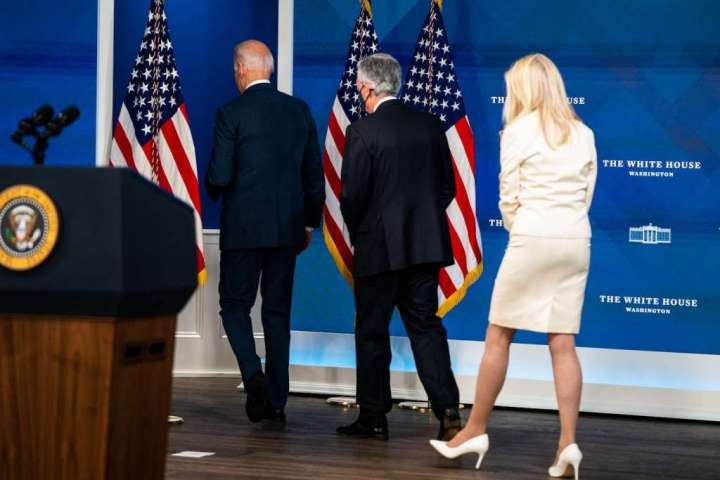U.S. policymakers misjudged inflation threat until it was too late

In the State Dining Room of the White House on Feb. 5, President Biden argues that the U.S. economy faces a bigger risk from doing too little to fight the downturn than doing too much. His administration had been pushing a large stimulus plan intended to reduce unemployment, inject new firepower into the anemic job market and quickly grow the economy. “If we make these investments now, with interest rates at historic lows, we’ll generate more growth, higher incomes, a stronger economy, and our nation’s finances will be in a stronger position as well,” Biden says. “So, the way I see it: The biggest risk is not going too big, if we go — it’s if we go too small.”
Biden is talking about injecting nearly $2 trillion in new federal spending into the faltering economy, even as some question the total, coming so soon after previous stimulus efforts, citing the risk of inflation.
About two weeks later, Federal Reserve Chair Jerome H. Powell says the money the government is spending on stimulus and covid relief shouldn’t be a problem. “I really do not expect we’ll be in a situation where inflation rises to troublesome levels,” Powell tells the Senate Banking Committee, as Congress nears approval of Biden’s $1.9 trillion stimulus plan. “This is not a problem for this time.” A “burst” of new spending shouldn’t cause unwanted inflation, he says.






